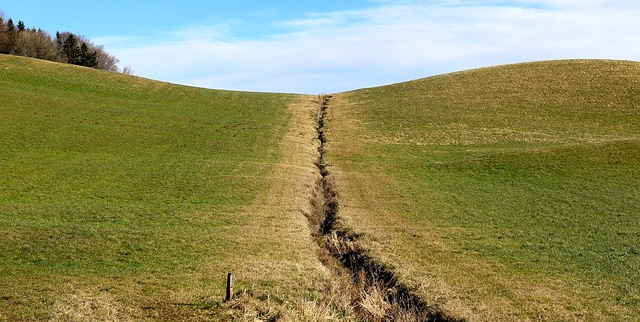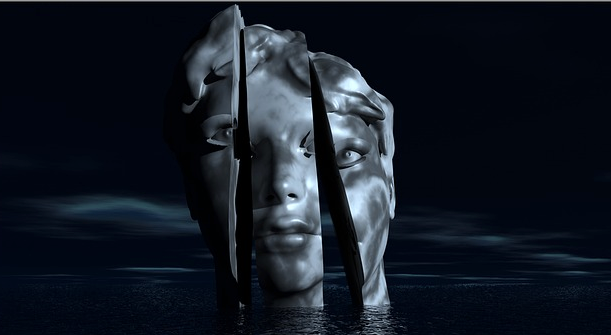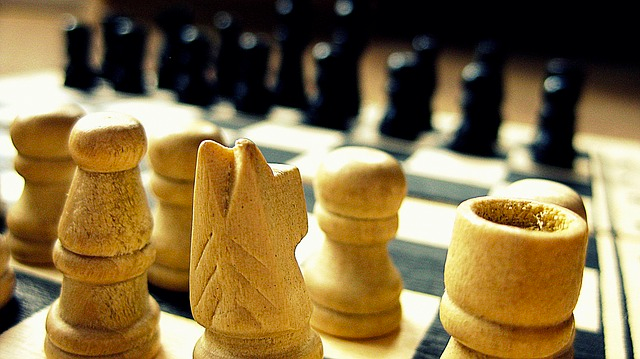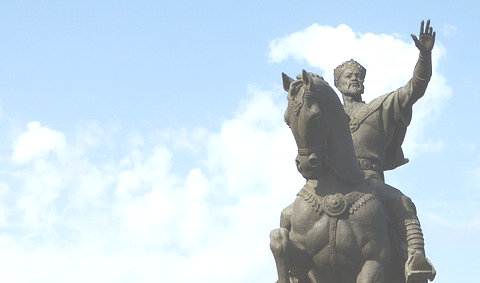
(Way With Worlds is a weekly column on the art of worldbuilding published at Seventh Sanctum, Muse Hack, and Ongoing Worlds)
Having explored the psychology of conflict and the way that conflicts can go from simple disagreements to smashing galaxies with a Dimension Cannon, let’s take a look at some of the more personal elements of conflict. It’s a bit of a break from the galaxy-smashing thing, but the potential is there of course.
Let’s talk biases and bigotry, those steps that often let us climb the ladder to conflict. Or descend into the pit of conflict, whatever, pick your metaphor.
We’ve all encountered biases and bigotry in real life and been driven crazy by them. We know people affected by them. In our historical readings we’ve seen cases where biases and bigotry have led to atrocities with depressing regularity. Bias and bigotry is everywhere.
Which means that as world builders and creators, we need to think about these horrible things because they’re probably part of our worlds.
Worldbuilding isn’t for people afraid to get their brains messy. So since you have to write the biases and bigotries in your world, and the results of their existence, let’s talk about them.
But first . . . (more…)

(Way With Worlds is a weekly column on the art of worldbuilding published at Seventh Sanctum, Muse Hack, and Ongoing Worlds)
So there’s a reason I covered humans (and human-alikes) and the psychology of conflict first. Characters and their institutions are often the causes of conflicts – and characters are the lenses through which players/readers experience your world. We have to think about them first in the case of worldbuilding because it gives us the right perspective.
But with that said, you need something to get your cast to engage in (or prevent) atrocities. What are he drivers and elements that create wars and conflicts?
Again, it’s often a matter of perspective. Which is the problem in fiction – and come to think of it real life as well . . . (more…)

(Way With Worlds is a weekly column on the art of worldbuilding published at Seventh Sanctum, Muse Hack, and Ongoing Worlds)
For the next few columns I’m going to be exploring the dysfunctions and conflicts in the worlds we create. Not conflicts brought about by our mistakes as worldbuilders (though those can become fuel for deeper worldbuilding as noted), but what happens when things break down? Sure we’re all busy building our world, but things go wrong inside the worlds as part of good worldbuilding, and we have to figure out the implications of the crises we create.
In fact, as repeated several times, conflict is actually part of the process of making a world accessible and interesting. People want to hear stories and play games about things that happen, and that often involves conflict. Not always of course, but often enough it warrants its own section here in a series of columns by a slightly-mad-scientist of randomizing ideas.
Now everyday conflicts are one thing; arguing over a tab, not being able to find dragon dung at the alchemist’s shop, and so on. Let’s talk about the big ones, the ones that are epic and horrible, the ones we write about – and the ones that in real life make us wonder why the hell they happened.
So let’s go and find out just how things break down and go wrong. We’ll start with how it stays together in the first place – well, how our cast of characters and people keep it together. After all, they’ll be the ones you’re writing about or your players are playing.
Also they’re probably the ones causing the problems . . . (more…)

(Way With Worlds is a weekly column on the art of worldbuilding published at Seventh Sanctum, Muse Hack, and Ongoing Worlds)
So last we met I discussed how using RPGs was actually a boon to Worldbuilding. There were positives in stimulating thinking, in sheer entertainment, and of course using premade concepts to test the consistency of an RPG system.
Now let’s talk the negatives of using using RPG systems in your worldbuilding, be they mapping characters to classes or diving into them for ideas. Yes, there are negatives.
Hey, it’s not all sunshine and worldbuilding here. Some stuff is just bad.
The core issue is that RPG systems are just that – systems – and any use of a system can constrain you. That is actually the point of having a system. The problem is the system is an outside factor influencing your imagination.
Which is good. Sometimes.
In this case however, we’ll look at how it can go bad. (more…)

(Way With Worlds is a weekly column on the art of worldbuilding published at Seventh Sanctum, Muse Hack, and Ongoing Worlds).
A lot of people who wolrdbuild get into roleplaying games. I feel I can make this statement clearly; its true in my experience, and of course I’m not quoting any numbers so I have deniability. I’m covered here!
But seriously, it seems like people get ideas from, put ideas into, or think of ideas in forms of RPGs. I’m not just talking the freeform collective storytelling style of RPGs – I’m talking about the rules-and-dice type RPGs that we’re all familiar with.
We wonder what class a character would be in a given game.
We try and build a character we made in a given game.
We think of game rules as writing guidelines.
We get ideas looking over game rules.
And more . . . (more…)

(Way With Worlds Runs at Seventh Sanctum, Muse Hack, and Ongoing Worlds)
So we discussed the odds of things in your world, of knowing how likely things were. Now let’s talk the thing you’re writing the most, the odds you know but don’t realize you know, and the most important part of your world and he tales in it.
What’s normal.
In fact, I’m going to tell you that what your stories are about, your world everything about them, is about what’s normal. No matter how freaky your character, strange your plot, normal is what’s important.
And you need to know what’s Normal in your world.
The Importance Of Normal
Normal in your world is what is reliable and predictable. Gravity works, rain falls, and Dz’orgak the demon lord is made from the blood of the Fallen God which is why every ruby gem is his eye spying on your sins. Normal are those truths that your world rests on as sure as we rely on the sun rising.
Enormous amounts of worldbuilding and tales inside those worlds rely on a grounding of normal. Roadways that re reliable, swords made of metal, reproductive biology that ensure species go on, and so on are just normal – what you can count on so you can build a world of it, even if some may change Normal gives your world a foundation so it actually is something, and gives something for readers/gamers to understand and apprehend.
If there’s no sense of normal, then the world itself becomes meaningless. Now in a few cases this might be your point, but in general worldbuilding is about building – making something. Normal has to be assumed, a foundation must be there, or everything is meaningless.
Even if your world is weird to us, having a Normal means we can understand it, relate to it, and thus believe it and enjoy it. It just may be a rather odd normal.
Weird Needs Normal
This normalcy is important not just to provides believable world but to help people relate to what goes on it it – which often are anomalous events and characters.
Tales often deal with exceptions to the normal because stories are often about deviations from norms – I mean if there’s no deviation not much may actually happen to tell. This deviation could be as big as a war among galaxies or as small as a quirky set of characters at a coffee shop who are weirdos. However the normal provides the grounding to tell you what the abnormal means.
Some characters specialize in the abnormal – the policeman who investigates crimes, the warrior who fights invaders, the psychologist who deals with insanity. There’s a reason we love stories with people like that – they’re interesting as something happens. They try to restore normal (or find a new one) and that’s what the story is about.
Normal lets you understand just what the abnormality you’re often writing about means.
Sort of the normal abnormal. If you don’t know normal, these anomalies become nonsensical or worse, “inappropriately normal.”
Going Away From Normal To Get Back To It
Knowing the Normal of your world is also important to understand events and thus stories that take place in it. Most people’s travails, most tales, most great wars and small quests, are either seeking a return to normal or a new normal. Normal is also a “goal” of people to get to, even if normal only exists in their head.
Now of course this normal may not be possible, or desirable, or realistic. The normal a character or a culture may seek could be a complete delusion. Which is important because there’s normal and normal if you get my drift . . . but that’s also part of the world and your tales.
The True Normal And A Character’s Normal
Knowing what’s normal in your setting helps you understand character motivations and expectations. The average, the reliable, the likely affect people, providing a ground for what happened or a contrast to their own crazy lives. Expectations of what is normal for characters – and often what they’re seeking – comes from their ideas of normal.
Characters may have an inaccurate ideal of normal. How many times in history have we seen people long to return to “normal,” when their idea of normal was a self-deceptive mix of nostalgia and ignorance? How many do we see now?
There’s normal and then there’s the normal in our heads. We need to understand what our characters expect to be normal – and what is really going on.
In fact, characters may just not understand normal or want to. If your universe is one of magic and a scientific civilization refuses to admit this, then you may know normal – but the characters don’t. That’s quite a tale to tell, yet the whole point is ignoring normalcy.
You need to know what’s normal. Your characters well may not – which of course is part of things you’d be writing on.
Their inaccurate ideas of normal may be common enough that their abnormality is rather normal.
Audiences And Normal
Your audience will almost immediately need a set of normal expectations to understand your work – often a tricky business when you’re creating a crazy world. As noted earlier, people have a natural sense of odds and likelihood – and in turn, of normalcy. They’re going to look for it right off the bat.
Audiences can usually sense if your world has some “normal” in it. We’re good at finding coherence in settings, and if your world doesn’t have rules and its own normal, people will pick up on it. They may not care, they may not need much “normal” to figure things out (magic works, wizards blow stuff up a lot might be enough), but they need something. If you don’t give that to them, the world will lack meaning to them.
It also gets a bit tricky to communicate your setting as people have to get it, while at the same time it’s rules may be a bit odd, and you don’t want to overexplain things on top of that. That requires some careful writing of your tales, to avoid over-explaining or under-explaining the world you built.
This is ultimately where you, the world-builder, have to figure out what’s normal. Oh sure you’r not going to spell it out, but you need to know.
Knowing Normal
So how do you know your normal in your world?
I find, rather interestingly, we usually build “Normal” into our worlds by instinct. You can’t have a coherent setting without some rules and norms and so on. In fact, to try and make your setting weird enough for your goals you may have to actively make it stranger.
However, I think we’re helped in worldbuilding by being aware of normal and what’s normal. Much as when I discussed the odds, we should spend some time analyzing what is normal and expected in the world. Even if we never use it directly, it helps us build the world.
Here’s a quick guide to the Normals to look for
- The Reality Normal: What is the nature of reality. Hard science? Everything has magic in it? What does this mean for your setting (if anything). Sometimes this is boring as you say “actual physical laws, next.”
- The Setting Normal: What are the norms of your setting or settings. Drought or flood, many mountains or huge plans, and so on. This helps you build the setting, and understand how characters and cultures interact with it. If your setting has a lot of desert, the norm is “dry” and the norm also is going to be finding water.
- The Culture Normal: What is the normal for cultures characters are in, the expectations, ideas, and language. There will be both the “Norms” of the culture and the normal parts of the culture, what is expected and what is common. A culture may put great value on honesty, but may have sexism built into it that is common but rarely analyzed as it’s so regular.
- The Personal Normal: What are a characters own experiences, understandings, and so on – and how normal are they? A character may be utterly average (dare I say normal) with one outstanding trait. A characters’ experiences may differ radically from others – making them seem disconnected or perhaps making them wiser.
Note these norms are all going to play into each other. If you have a desert culture that values honesty but has the inbuilt assumption men are violent, a male character raised by water thieves as a calm master of disguise is going to really be something read. How many times will someone ask “are you sure he can keep calm pretending to be this guy?” and what plot points could you explore.
Think Normal
In doing worldbuilding, much as I note it helps to note odds and some of the math of your world, consider what’s normal. Definitely put it in your worldbuilding notes as a reminder for yourself so keep you grounded in what you do. It’ll remind you of what should happen – or remind you in what case it’s time for things to get abnormal.
– Steven Savage
Steven Savage is a Geek 2.0 writer, speaker, blogger, and job coach. He blogs on careers at http://www.musehack.com/, publishes books on career and culture at http://www.informotron.com/, and does a site of creative tools at http://www.seventhsanctum.com/. He can be reached at http://www.stevensavage.com/.

(Way With Worlds Runs at Seventh Sanctum, Muse Hack, and Ongoing Worlds)
I’m not quite Han Solo. You don’t have to tell me the odds, but I’d like a good sense of them when it comes to your world. But I do look good in leather.
When we play a game or ready a story, intuitively, we need to know the odds. If it’s unlikely someone can survive a fight with ten well armed Knights of The Singularity, when they win it makes us wonder how. If someone is ethnically and racially different than we expect in a game world, the impact of that difference is felt if we understand just what it means. Likelihood – and lack of likelihood – is something that we need to understand to get what something means.
I think this is instinctive to humans, and even more so in people with a vague sense of math and probability. We’re always evaluating, re-evaluating, projecting, and understanding. When math is part of our lives, even moreso. Either way, it’s human.
So the odds need to be part of your world. If they’re not, then you may be in for some problems. If you can’t express the chances of things happening, then your world isn’t going to make sense. People won’t be able to grasp what’s going on as their natural ability to evaluate can’t find anything to hold on to in order to make sense of the world.
(Even if you do know the odds, you might not use them right)
Lets talk what the odds are in your world, how to use them – and how not to overuse them. (more…)

(Way With Worlds Runs at Seventh Sanctum, Muse Hack, and Ongoing Worlds)
Having discussed character goals, abilities, plans, actions, and results, let’s talk about the stakes characters fight for.
Oh, and how we screw it up. And maybe how they screw it up, but that’s more “story” than “author messed it up.”
What Are We Fighting For?
Characters set out with certain goals and values and are trying to achieve something – even if that’s preventing something. They are, in short, fighting for something. It may not seem like a conflict, but if it’s not something easy to do, it’s a conflict of some kind.
We, as readers, are drawn into the goals because the world is believable, the characters well written, the gameplay compelling, etc. When the stakes are well-realized, when they are understandable, they both draw us into the world and enhance the experience. When stakes become our stakes, the goals our goals, the risk our risk, we’re truly involved – and the world we experience is truly alive.
If you’ve ever dodged in real life while playing an FPS or gotten angry at a fictional character, you know how compelling a world and its realization in fiction or media can be. The stakes are real.
Probably this is why we love viscerally. Even the worst film or story can make us sympathize with someone (no matter how poorly written) in a situation we relate to. We get humiliation or pain. Probably his is one reason authors and worldbuilders resort to blood, violence, sex, and fear too often – they’re visceral and have that chance to draw you in.
(Well visceral until you get tired of them).
So as you may guess, the Stakes are part of your world. They’re what gives us a tale, what makes characters believable, and what gives us a gut-punch realization of “what’s going on.”
Well, We Are Fighting For It, Right?
The things that occur in your world, the challenges and risks, are born of your setting – just like the characters who deal with them. They are part of the weather or he culture or the divine or the infernal that you’ve created. What’s going on, what’s at risk, is part of your setting.
Well, it is if you do it right.
Action-reaction, results, risks, are all part of good worldbuilding. You need to know what happens, what goes wrong, what results occur when things are done or aren’t done. When you know how things “work” then in turn you can understand the stakes of what’s going on, how the characters feel, the results they want. – and what draws in your reader or player. If your world isn’t properly defined, properly connected, it becomes unbelievable, the stakes are meaningless, there’s less visceral appeal, and suspension of disbelief gives up and goes and gets a coffee.
Ever read a story where the goals seemed lame, the risks trite or poorly-created, and the sense of what people are trying to do didn’t hold up? Or you’d seen it all before and felt like someone had brought in a Risky Stakes transplant from another story? The world wasn’t well designed, the stakes had no meaning, the characters had no meaning, and you were just there watching a pile of stuff.
You get the idea.
How you build your world sets the stakes for characters. Now that may seem obvious, but I find we get trapped in designing them or not even realizing them. We stop building the world and start just throwing stuff into it.
Overdone Stakes
(Yes, lame joke preserved from original column).
One problem in worldbuilding is that after we start writing our world, or coding it, we need to keep people’s interest, so we raise the stakes ridiculously. You’re probably especially aware of it from bad media and some games, where the villain apparently has a magical backside that holds plot devices, or suddenly the enemies are a lot tougher for no good reason. It’s just there to ramp up difficulty to maybe hold your attention.
This “ramp up”is often a natural result of increased competency on the part of the protagonists – as noted in last column, characters growing and applying themselves towards goal is part of any tale, and thus world. But we can way, way too easily fall into jacking up the difficulty level as it were to keep things going.
This is a risk because basically you throw out the laws of your world just to keep people’s attention. Now you might be able to keep it within setting constraints, but based on many things I’ve seen . . . I wouldn’t take the risk.
Now my answer to this is “just build a good world”, but there are traps we often fall into. So to help you out, let me note a few common ways of raising the Stakes that we can do with out:
- The End Of The World As We Know It – And I’m Annoyed – Turning things into world-threatening crises when they weren’t, aren’t, and can’t be explained may keep attention but is really obvious and worldbreaking.
- The War Of Heaven And Hell And Good Taste – Sometimes stories wander into supernatural territory and next thing you know everyday stuff or even non-everyday stuff is a theological smackdown. That’s good if that’s your intent, but trying to get metaphysical just to keep interest can be quite lame. You can also have the stakes raise to such ridiculous levels with pasted-on-morals that it might as well be a kind of Potemkin Apocalypse.
- The Last Best Extremely Contrived Hope – Another way people jack up the odds is creating a chosen one who’s the only person that can save things. THis is pretty much the aforementioned Idiot Plot or Planet of the Morons. And it’s unbelievable, worldbreaking, and annoying because it stands out (and it’s over done).
- The Destiny March of History – Suddenly, characters discover destiny, legacy, or something else that makes their struggles More Important. Meanwhile the audience doesn’t buy it.
- The Sudden Ramp-Up – Suddenly things are tougher . . . because. Not due to cause-and-effect. Not due to a master plan. Just you ramp up the stakes with some plot device to keep interest. Yes, it’s obvious.
Don’t jack up the stakes inappropriately. Don’t rip your world apart to wedge a piece of extra excitement in. It’ll break your system. And sure, some creators get away with it, but some don’t.
Do you want to take the risk? Are your stakes worth it?
No, they’re not. Build a good world. If anything, just find the most exciting parts of it to tell.
In Closing
Know the Stakes people are fighting for and what they’re trying to do. Understand the results – but let them be part of your setting. Otherwise you risk mapping tropes or easy-outs to keep interest – and people will know.
– Steven Savage
Steven Savage is a Geek 2.0 writer, speaker, blogger, and job coach. He blogs on careers at http://www.musehack.com/, publishes books on career and culture at http://www.informotron.com/, and does a site of creative tools at http://www.seventhsanctum.com/. He can be reached at http://www.stevensavage.com/.

(Way With Worlds Runs at Seventh Sanctum, Muse Hack, and Ongoing Worlds)
Stories, games, and all fictions are about people, about characters, about what they do and why. They may not be like us, we may not like them, but that’s what’s going on. We’re watching people (even if not human) do stuff to get results, though we may put it in more colorful ways.
Goals, methods of reaching them, and results are, in a way, everything a story is about. In the end, you’ve got to save the prince so you can throw the one ring into the fiery pit of the starship engine to bypass the alien invaders before your ninja rival does.* No goals, no methods, no results, no story, no interest.
Therefore, your world has to include characters that have believable goals, ways of achieving them, and results.
Which is obvious.
And, as you’ve heard me say many times, and doubtlessly will again, obvious is the problem.
Let’s dive in. (more…)

(Way With Worlds is published at Seventh Sanctum, MuseHack, and Ongoing Worlds.)
In a strange bit of irony, Im still talking about originality here. Seems sort of weird to keep covering a subject on being more original by not shutting up about it, but here goes.
So there’s one more subject to cover for Originality, of that hard to find, illusionary yet somehow real, quest for “Originality” that so many of us seek, few seem to find, and fewer seem satisfied with. Perhaps thats the point- if we’re not always looking then we’ll not be original. Whatever that is.
In fact, the whole subject is “we.” Us, me – and specifically you.
As noted, I consider “originality” largely illusionary, something whose specter hovers over us only because we believe in it so much. What is more important in originality and world building is to bring your world to life. Even the most “unoriginal” world brought to life will intrigue and involve people. A seemingly boring person is probably far more interesting than a mannequin.
You bring the world to life.
Too many of us resort to tropes. to well known story elements, in our world creation. These bits of social, cultural, and literary elements are easy to use, but rarely connect and come to life unless you do things right. Frankensteining together a setting of previous pieces, much like the original Frankenstein, tends to result in trouble and is something not truly alive. It’s up to you to make it work.
Again it all comes down to you.
So if you want originality, want a world that’s alive and memorable and involving, you’re what makes it all unique. Original – whatever that is.
You’re the secret ingredient to get a good world, and perhaps even “originality” whatever rh shell that is. No matter what you make or do the one thing that no one else can do, no one else can bring in is you.
So let’s ask just what you bring to your world and your tale and your quest for originality and uniqueness.
A Unique Perspective
No matter how common your life may seem, no matter how boring it may seem, your life is your own. How you see things, how you view them, how you interpret them is going to be something no one else can have. Your world and all the works derived from it will reflect that.
Think about how you see something affects stories and world buildings. You may have a unique view on some given relationships, or a different take on cooking, or can relate to a character in a way few others can. Your work is infused by how you see things – and in turn, that affects how people see your setting.
I’m not saying your life is going to be fascinating or interesting, nor that your take on things will be as well, but it will be yours. Work with that because you know it better than anyone – and that lets you use it to infuse life into your creations. Real life.
Take It Farther: You can take this farther by understanding the unique view you bring to your world and world building, and the tales and games that follow.
Unique Skills
Then there’s your unique skillets that inform your world building and your creativity.
Now skills are important in world building because:
- You can write about people that use your skills. Ever read a story where someone clearly didn’t know the lifestyle and life experiences of some people? Yeah, you can avoid that embarrassment in your settings.
- You understand how that skill-based part of the setting you write may work. In turn, your world becomes more believable. For myself, I’ve found my love of cooking added an edge to understanding setting design.
- You might be able to use the skills right in your world building, writing, game development and so on. If you’re good at explaining technology, if you’ve got a flair for the poetic, if you know the right words for something, that works right into your world building and how you communicate it. Imagine being a programmer who writes games, in a cyberpunk setting, so you can make it even more believable as well as well coded.
- You have unique experiences with your skills, job, etc. that can provide inspiration. Much as you have a unique perspective on things in general, your hands-on experience may give you many ideas. One of my friends with military service used that experience to take a serious look at military SF and it’s many assumptions, and come up with new, unique take that was more informed.
Sure you may not think you have any unique or interesting skills. You may write, but so do many others. You may cook, but so do many others. You may code, but so do many others. However this is your unique set of skills, your perspective, and your huge list of abilities, knowledge, and talent that you can mine for a better world building experience.
Take it from a Program Manager who cooks vegan food and writes about Geek Careers and Creativity. We’re all unique in what we do, in some way. if only in combination.
Take It Farther: Ask what skills you have that relate to characters or settings in the world you build – can you better understand certain parts or better create certain characters. In turn, ask if any of them can just help your world building or how you implement the world.
Unique Experiences
Any writer saying they don’t use personal experiences in their world-creation and creativity is ignorant or lying. I’ll give you the benefit of the doubt on “ignorant” if you say you don’t do it.
We all use our personal experiences in our art. We really have no choice because our experiences are how we assemble a consistent story of our real life, so in turn we’ll use them in our world building. Our broken heart, our feeling that school is frustrating for so many, our knowledge of working in an ER, all those experiences inform what we make.
So we might as well admit it, realize it, and put it to use as world-makers.
Our unique experiences – and much like our perspective, they really are completely unique at least in combination – inform everything we do. We can’t get away from them because they’re us.
There’s a combination of events, unusual happenings, and so on that is unique to you. Use that in your world creation to bring it to life and make it “original” by realizing it and using it.
Take It Farther: What experiences do you have that stand out in your mind? Are any relevant to your world building? Are any “common” but you had something about them that made them unique?
So Go On And Be You
These things, perspective, skills, and experience are yours. No one has quite the background you do – and the combination of elements is probably very unique.
Even the things that seem common to you are probably unique in combination. Sure being a computer programmer may not seem unique, being into techno may not be unique, being into surfing may not be unique, and liking to do baroque may not be unique. But a techno-loving programming surfer who can make a mean set of ribs is comparatively rare.
Realize these things, put them to use, and appreciate them. They’ll help you grow as a world builder, provide unexpected tools, and finally give you another shot at worrying less about originality. When you appreciate your uniqueness, you might see just where your work is unique and “original.”
And stop worrying about it and get back to work making worlds.
– Steven Savage
Steven Savage is a Geek 2.0 writer, speaker, blogger, and job coach. He blogs on careers at http://www.musehack.com/, publishes books on career and culture at http://www.informotron.com/, and does a site of creative tools at http://www.seventhsanctum.com/. He can be reached at http://www.stevensavage.com/.




